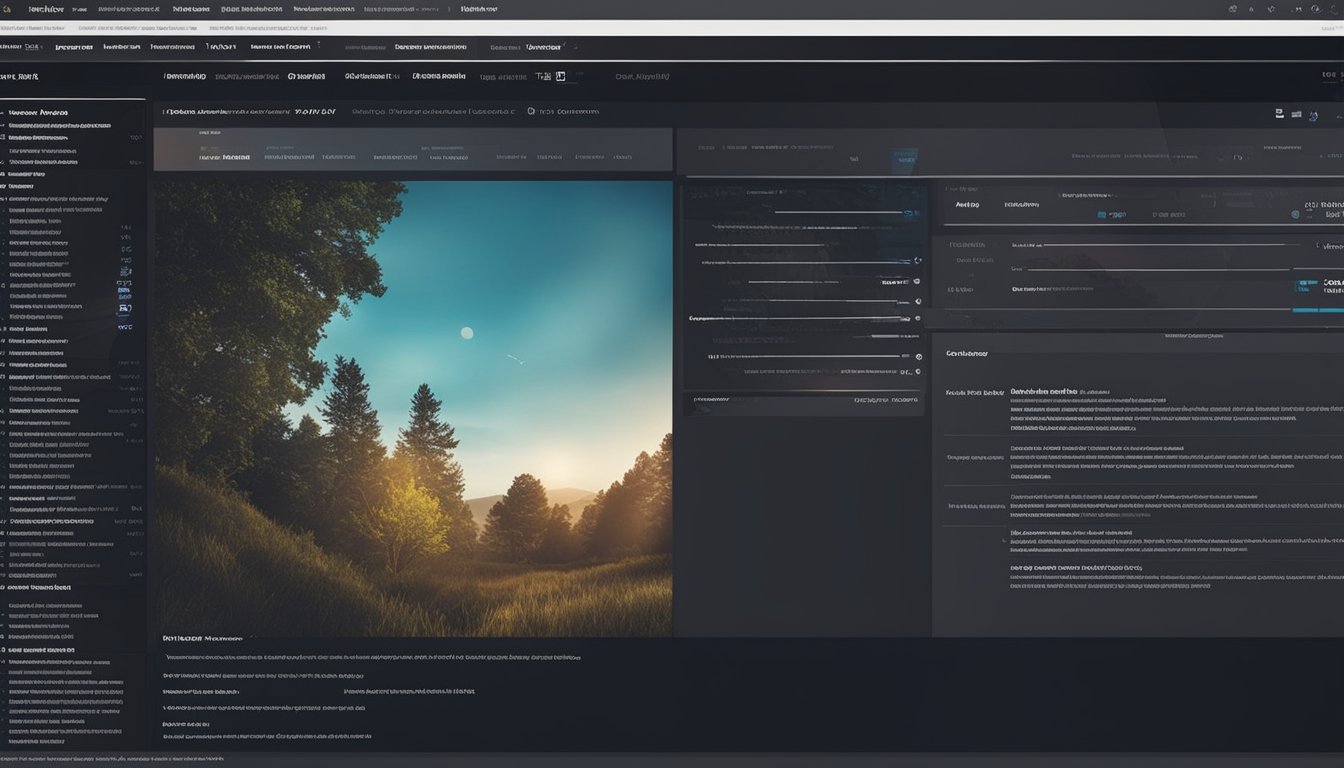Future Custom Software Development Trends Watch
Custom software development is an ever-evolving field that demands a lot of attention from businesses and industries. As we move into the future, it is essential to keep an eye on the emerging trends that will shape the landscape of custom software development. These trends will impact how businesses operate, how they interact with customers, and how they gain a competitive edge in the market.

One of the most significant trends in custom software development is the rise of AI-driven solutions. AI has the potential to revolutionize how businesses operate by automating processes, improving efficiency, and reducing costs. Another trend to watch is the use of low-code platforms, which allow developers to create applications with minimal coding knowledge. This trend is expected to increase the speed of app development and reduce costs. Finally, there is a growing focus on security in custom software development. As cyber threats become more sophisticated, businesses must prioritize security to protect their data and reputation.
Key Takeaways
- Custom software development is an ever-evolving field that requires attention from businesses and industries.
- Emerging trends in custom software development include AI-driven solutions, low-code platforms, and a focus on security.
- These trends will impact how businesses operate, interact with customers, and gain a competitive edge in the market.
Current State of Custom Software Development

As a software developer, I have been closely following the trends in custom software development. In 2023, the industry is witnessing a shift towards more efficient operations and architecture. Companies are looking for ways to optimize productivity and reduce costs while maintaining high quality and expertise.
One of the key trends in custom software development is the focus on the software development lifecycle. Companies are adopting agile methodologies to improve collaboration and reduce time-to-market. This approach emphasizes continuous delivery and feedback, enabling developers to quickly respond to changing requirements and customer needs.
Another trend is the use of low-code platforms to accelerate development and reduce costs. These platforms allow developers to create custom software solutions without having to write code from scratch. This approach can significantly reduce development time and costs, while still maintaining high quality and expertise.
Security is also a major concern for companies developing custom software solutions. With the increasing threat of cyber attacks, companies are investing in security-focused development practices and tools. This includes implementing best practices for secure coding and testing, as well as using advanced security tools to detect and prevent vulnerabilities.
In conclusion, the current state of custom software development is focused on optimizing productivity, reducing costs, and maintaining high quality and expertise. Companies are adopting agile methodologies, low-code platforms, and security-focused development practices to achieve these goals. As a software developer, I am excited to see where these trends will take the industry in the future.
Emerging Trends in Software Development

As we move into the future, the software development industry is poised for some exciting changes. Here are some of the emerging trends that I believe will shape the landscape of custom software development in the coming years.
AI and Machine Learning
Artificial intelligence (AI) and machine learning are already revolutionizing the way we approach software development. With the ability to analyze vast amounts of data and learn from user behavior, AI-powered applications can deliver personalized experiences that were once impossible. As AI technology continues to improve, I believe we will see more and more custom software solutions that leverage this powerful tool.
Cybersecurity and Blockchain
With data breaches and cyber attacks becoming increasingly common, cybersecurity is more important than ever. Blockchain technology, with its decentralized and secure ledger system, is emerging as a powerful tool for protecting sensitive data. I believe we will see more custom software solutions that incorporate blockchain technology to ensure data security and identity verification.
Low-Code and No-Code Platforms
Low-code and no-code platforms are making it easier than ever for non-technical users to build custom software solutions. These platforms use intuitive drag-and-drop interfaces and pre-built components to simplify the development process. I believe we will see more custom software solutions built on low-code and no-code platforms like OutSystems, Appian, and Mendix.
Cloud Computing and Serverless Architecture
Cloud computing and serverless architecture are changing the way we think about software development. With cloud services like AWS and Azure, developers can easily spin up and scale resources as needed. Serverless architecture takes this a step further, allowing developers to build and deploy applications without worrying about infrastructure management. I believe we will see more custom software solutions built on cloud services and serverless architecture, as they offer greater scalability, flexibility, and cost-effectiveness.
In conclusion, these emerging trends in software development are just the tip of the iceberg. As technology continues to evolve, I believe we will see even more exciting developments in the custom software industry. By staying up-to-date on these trends and incorporating them into our development processes, we can build better, more innovative solutions for our clients.
Impact on Businesses and Industries

Custom software development is transforming the way businesses and industries operate. With the emergence of new trends and technologies, businesses must adapt to stay ahead of the competition. In this section, I will discuss the impact of custom software development on manufacturing and supply chain, finance and competitive advantage, and remote work and digital transformation.
Manufacturing and Supply Chain
Custom software development is playing a crucial role in improving manufacturing and supply chain management. With the help of advanced analytics, businesses can now optimize their supply chain operations, reduce costs, and improve efficiency. Furthermore, custom software development is also enabling businesses to improve their agility and responsiveness to market changes. Progressive web apps, for instance, are providing real-time data to manufacturing and supply chain managers, enabling them to make informed decisions quickly.
Finance and Competitive Advantage
Custom software development is also having a significant impact on finance and competitive advantage. With the help of custom software solutions, businesses can now analyze their financial data more effectively, identify trends, and make informed decisions. Custom software solutions are also enabling businesses to improve their agility and responsiveness to market changes. For instance, businesses can now use real-time data to adjust their pricing strategies and gain a competitive advantage.
Remote Work and Digital Transformation
Custom software development is also changing the way businesses operate in the digital age. With the rise of remote work and digital transformation, businesses must adapt to stay ahead of the competition. Custom software solutions are enabling businesses to improve their resilience in the face of disruption, reduce their carbon footprint, and improve their agility. Furthermore, custom software solutions are also enabling businesses to improve their testing processes, adopt low-code development, and embrace DevOps and agile methodologies.
In conclusion, custom software development is transforming the way businesses and industries operate. With the emergence of new trends and technologies, businesses must adapt to stay ahead of the competition. By embracing custom software solutions, businesses can improve their scalability, supply chain management, manufacturing, remote work, finance, competitive advantage, analytics, agility, progressive web apps, latency, virtual reality (VR), augmented reality (AR), carbon footprint, digital transformation, testing, low-code development, DevOps, agile methodologies, modern businesses, real-time data, and resilience.
Future of Custom Software Development

As a software developer, I am always looking towards the future of custom software development. In 2023, there are several trends that I believe will shape the way we approach software development.
One of the most important trends is time-to-market. With the fast-paced nature of technology, businesses need to be able to bring their products to market quickly. This means that custom software development needs to be efficient and streamlined, with a focus on delivering high-quality products in a short amount of time.
Another important trend is user experience. Customers expect a seamless and intuitive experience when using software, and custom software development needs to deliver on these expectations. This means that developers need to focus on creating software that is easy to use and navigate, with a focus on the end-user.
Customer experience is also an important consideration in custom software development. Businesses need to be able to provide a personalized experience for their customers, and custom software can help with this. By developing software that is tailored to the needs of individual customers, businesses can improve customer satisfaction and loyalty.
Performance is another important consideration in custom software development. Customers expect software to be fast and responsive, and developers need to ensure that their products meet these expectations. This means that developers need to focus on optimizing their software to ensure that it performs well under all conditions.
Transparency is also becoming increasingly important in custom software development. Customers want to know how their data is being used and protected, and businesses need to be transparent about these processes. This means that developers need to focus on building software that is secure and transparent, with a focus on protecting customer data.
Finally, identity verification is becoming increasingly important in custom software development. With the rise of digital identity theft, businesses need to be able to verify the identity of their customers. This means that developers need to focus on building software that is secure and can verify the identity of users with confidence.
Overall, the future of custom software development is bright, with a focus on delivering high-quality software that meets the needs of businesses and end-users alike. By focusing on time-to-market, user experience, customer experience, performance, transparency, and identity verification, developers can create software that is efficient, effective, and secure.
Frequently Asked Questions

What emerging technologies will shape the future of custom software development?
As we move into the future, custom software development will be shaped by emerging technologies such as blockchain, quantum computing, and edge computing. These technologies will enable developers to create more secure, scalable, and efficient software solutions, while also offering new opportunities for innovation.
How will AI and machine learning impact custom software development in the coming years?
AI and machine learning will continue to play a significant role in custom software development, enabling developers to create intelligent and personalized software solutions. These technologies will help developers to automate repetitive tasks, gain insights from large data sets, and create more accurate predictions.
What are the top software development trends to watch out for in 2024?
In 2024, we can expect to see a continued focus on AI and machine learning, as well as an increased adoption of low-code and no-code platforms. Other trends to watch out for include the rise of DevOps, the increasing importance of security, and the continued growth of cloud computing.
What is the role of DevOps in the future of custom software development?
DevOps will play a critical role in the future of custom software development, enabling developers to streamline the software development process and improve collaboration between teams. By automating processes and integrating development and operations teams, DevOps will help to create more efficient and scalable software solutions.
What are the challenges and opportunities in custom software development for the next decade?
The next decade will bring both challenges and opportunities for custom software development. Some of the challenges include the need to keep up with emerging technologies, the increasing importance of security, and the need to create more efficient and scalable software solutions. However, there will also be many opportunities for innovation, such as the rise of edge computing and the increasing demand for personalized software solutions.
How will the rise of low-code and no-code platforms affect custom software development?
The rise of low-code and no-code platforms will have a significant impact on custom software development, enabling developers to create software solutions more quickly and efficiently. These platforms will help to democratize software development, allowing more people to create software solutions without needing extensive coding knowledge. However, there will still be a need for skilled developers to create more complex and customized software solutions.









